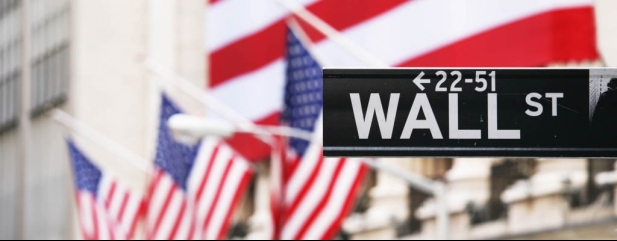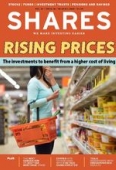Archived article
Please note that tax, investment, pension and ISA rules can change and the information and any views contained in this article may now be inaccurate.
The reaction to Biden’s tax plan is overblown

The latest tranche of Biden’s tax plan is provoking wails of protest on Wall Street. Proposals to boost capital gains tax have prompted warnings of a big market downturn in the US and already sparked some weakness in shares.
The argument is that people will sell their stocks ahead of any tax increase, causing the market to crash. In turn this will have an impact on the real economy and lower living standards for ordinary Americans.
Beyond this short-term risk there are fears it would encourage the wealthy to spend today and not invest their cash for the future, which could have a negative impact on the health of the economy longer term.
Set against this situation is the fact higher tax rates should help to pay for big spending on infrastructure to make the US fit for the 21st century.
The Biden tax plans are certainly a risk to watch but there are a few things to consider before we get too concerned.
NO REASON TO PANIC
First, the increase to capital gains tax itself is worth keeping in perspective – the idea is to tax people earning more than $1 million a year 39.6% on capital gains, around twice the current level.
This is certainly a big hike but one affecting a relatively small section of the population and not totally out of whack with where the rate has been historically.
Second, this move, and the other increases to corporation tax which have been trailed, are not in their final form. They still need to get past US lawmakers and while both houses of Congress are in the Democrats’ hands, their control of the Senate is razor thin (relying on vice-president Kamala Harris’ casting vote) and there are conservative members of the Democratic party who may well seek to soften the tax blow.
Think of what’s been reported so far as the opening pitch, not the final settlement. Finally, the idea of mass-selling of stocks seems unlikely.
With rates set to stay low and some assets out of favour such as bonds, where else are wealthier individuals going to put their cash to earn a decent return than stocks and shares? Tax changes may make a difference at the margin but stocks’ ability to deliver outsized returns over the long run should prove persuasive.

Important information:
These articles are provided by Shares magazine which is published by AJ Bell Media, a part of AJ Bell. Shares is not written by AJ Bell.
Shares is provided for your general information and use and is not a personal recommendation to invest. It is not intended to be relied upon by you in making or not making any investment decisions. The investments referred to in these articles will not be suitable for all investors. If in doubt please seek appropriate independent financial advice.
Investors acting on the information in these articles do so at their own risk and AJ Bell Media and its staff do not accept liability for losses suffered by investors as a result of their investment decisions.
Issue contents
Editor's View
Feature
- Help, I want to start saving for the future
- Rising prices: The investments to benefit from a higher cost of living
- Why value shares win when interest rates rise
- Ongoing uncertainty for commercial property stocks
- Emerging markets: Views from the experts
- Understanding China’s dominant but under pressure internet stars
Great Ideas
- Focusrite is up 75% in the last nine months
- Big upgrades for Morgan Sindall on bullish trading update
- Anglo American is an attractive play on electric vehicle and renewables transition
- Exit Anexo which has gone nowhere on positive news
- Buy payments challenger Equals as it passes the 2020 test
- RWS merger continues to pay off in spades

 magazine
magazine








